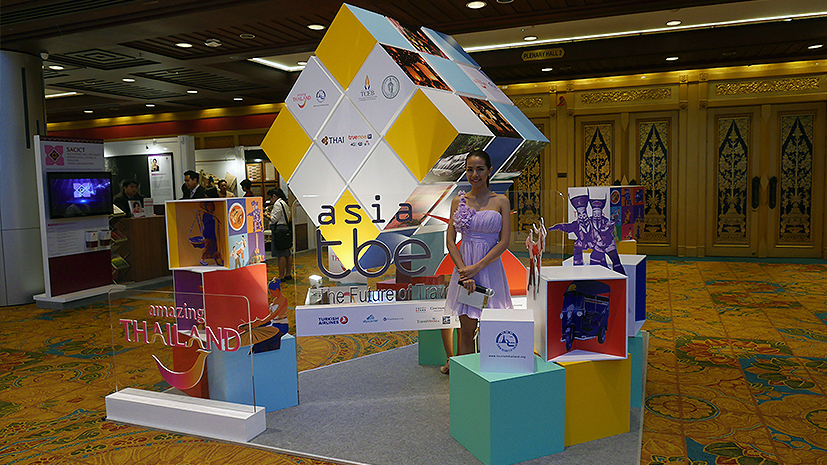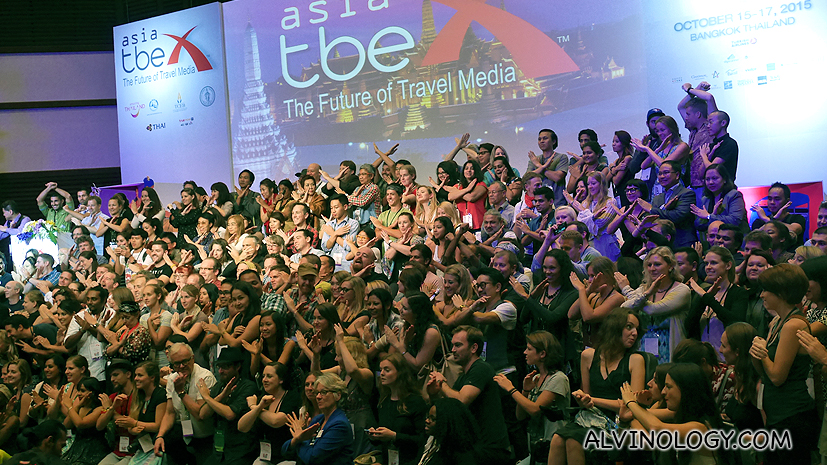
The audience shift to digital means that travel bloggers — while not replacing journalists — are able to offer things print journalists can not, such as search engine optimisation, targeted metrics, and personalised content.
Earlier in October, I was invited by the Tourism Authority of Thailand (TAT) to attend the first Travel Bloggers Exchange in Asia (TBEX Asia), hosted in Bangkok, Thailand.
I was the sole invited blogger representing Singapore, along with a group of about 50 other bloggers from around the world.
The first TBEX was hosted in Spain back in 2012. It then moved from Europe to North America and finally to Asia this year. Next year, it will be hosted in the Philippines, another Southeast Asia country.
The event is touted as the world’s largest gathering of travel bloggers, writers, new media content creators, and social media-savvy travel industry professionals, providing everyone an opportunity to network with industry people from across the globe.
Why are travel marketers looking so keenly at engaging with bloggers? When I first started blogging in 2007, I would never have imagined myself being invited to such an event with all expenses paid – or the fact that such a global trade event targeted at bloggers would even take place.
During one of the sessions, a journalist from a more traditional print background lamented to one of the speakers and the audience of mostly travel bloggers: “With the advent of the Internet, what role do traditional journalists still play if the online guys are cannibalising on our territories? Is there no more space for quality, in-depth, and serious travel news writing?”
I found his questioning rather presumptuous. What makes this guy think that people who write content for online places cannot come up with “quality, in-depth, and serious” news writing?
Among the travel bloggers I met at TBEX Asia, there were many journalism professionals, including ex-journalists from established media outlets like BBC. Even yours truly was previously working in the traditional media space for companies like Singapore Press Holdings and News Corp.
The fact is, even traditional news organisations have been actively moving toward digital to better engage with a new audience. The travel industry is big enough to encompass everyone. Fundamentally, it is also not just the writers and marketers who have shifted to digital, but, most importantly, the audience to whom we are reaching.

A few key points that highlight the shift:
- Cheaper.
Let’s face it, a US$10,000 full-page, full-colour print advertisement in a newspaper may be effective for that one day of travel promotion. But if you shift this budget online to engage with independent travel bloggers or even ad buys on digital platforms like Google and Facebook, the same budget may be able to last for an entire month and reach out to a more targeted audience.
- Metrics.
Digital channels allow better measurement of return on investment, and metrics are very precise. You can pinpoint exactly how many readers were reached for each article, and you can even track direct sales conversions if trackers are inserted into the posts.
Yes, there are the Nielsen ratings and surveys, but metrics don’t hit this level of precision in the traditional media space.
- Personalised content.
We are entering into the “me” generation. Blog content is more personalised, much like a good friend sharing a travel itinerary he or she personally experienced. It reads more casually. Maybe the photos and writing are less refined at times, but they are much more authentic with real-world flavours.
- Search engine optimisation (SEO).
This gets a little technical, but getting hundreds of travel bloggers to write about your travel products or services helps in your brand’s SEO. By creating lots of quality backlinks, your brand can be rewarded with a more prominent search position on search sites like Google.
- Direct sales.
Ever hear of the term affiliate marketing? This in the “in” thing for many travel sites like Agoda and Airbnb. Basically, bloggers embed links to book flights or accommodations in their sites and are rewarded with a small commission each time their readers do so. Some travel sites also offer rewards for the bloggers’ readers with a small discount.
In this way, everyone wins: The blogger gets to make a small and passive, but regular, income. The reader gets good content and maybe a discount. The travel site earns a transaction. It’s like employing thousands and thousands of freelance sales agents to market and sell your products or services directly across the globe.
I can probably list quite a few more points, but at the essence of it all, it basically boils down to “cheaper, better, faster” – from a quote from Singapore’s Minister for Manpower, Lim Swee Say.
It’s not that digital is cannibalising on traditional media. Rather, the world is changing, and the shift is necessary to move with the times. Agree?
This post was first written for the International Newsmedia Association.











